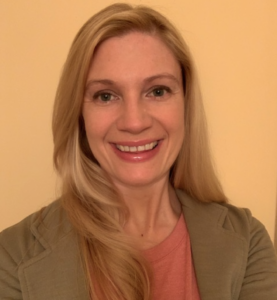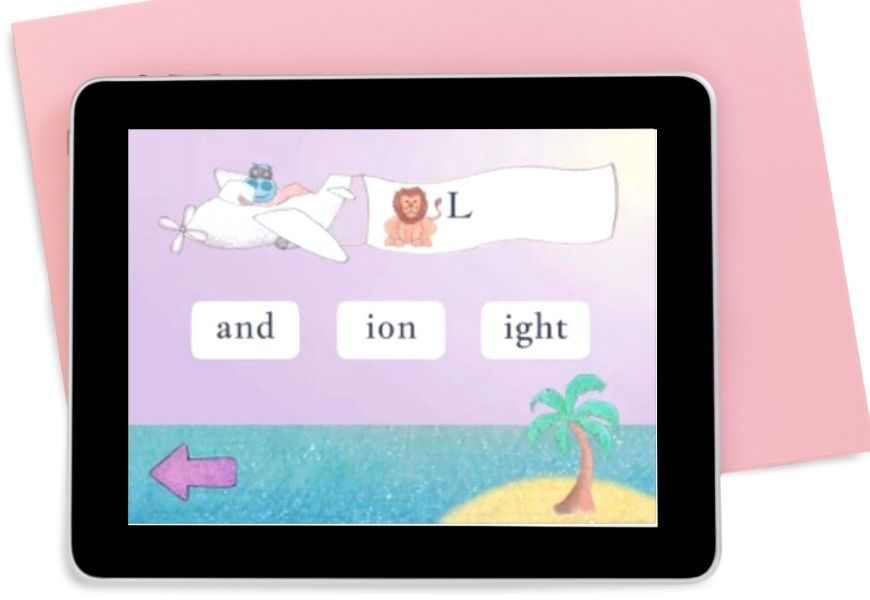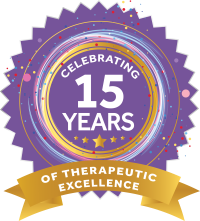by Sara Smith, MS, CCC-SLP
Early in my career as a Speech Language Pathologist I worked on some research projects related to phonological awareness and literacy development. After pouring over countless studies and research articles, a consistent theme began to emerge. I began to see a strong link between phonological awareness, reading skills, and speech-sound disorders (here is where my more experienced SLP self says,“duh.” Right?).In a nutshell, kids with speech-sound disorders typically have poor phonological awareness skills, and kids with poor phonological awareness skills typically have difficulty learning to read. When phonological awareness is improved, early reading skills improve…AND research has shown that improved phonological awareness also improves articulation skills.Once this concept clicked in my young SLP brain, I began to see opportunities everywhere for incorporating phonological awareness. I also began to see so many missed opportunities during speech therapy sessions.As I observed fellow SLPs, I noticed that they solely addressed the target sound, but did not address the larger patterns of phonology and early literacy skills. It was as if they were scared to step into the world of literacy.
“It’s not my job…”
When I casually asked some of my fellow therapists about this, I received two consistent responses. The number one answer was,“It’s not my job to teach kids how to read”, and I totally agree. It is not our role as an SLP to be a reading specialist or “teach kids how to read”, but as a speech therapist we have a unique opportunity to incorporate some pre-reading skills into our approach. This not only benefits the students in literacy, but also improves their articulation and speech-sound development, a win-win, right?!
What is phonological awareness anyway?
Phonological awareness is the understanding that language has structure and patterns and that words can be broken down into smaller units.Phonological awareness includes tasks such as:
- Rhyming
- Alliteration
- Letter identification
- Segmenting
- Blending
We aren’t talking about retraining ourselves to be reading teachers, we are talking about using the skill set we already possess as SLPs, and just incorporating some of these pre-reading skills into our articulation therapy. Early literacy skills and articulation development truly go hand in hand, so it just makes sense!
“I don’t have the materials or time…”
This leads to the second most common response from my fellow SLPs, “I don’t have the materials or time to include literacy development into my sessions.”I hear you!You are already pushed to your limit and can’t imagine adding anything else to your plate. The good news is that you can easily incorporate a phonological awareness approach into your speech therapy sessions using materials you already have in your therapy room.
Phonological awareness activities for SLPs
Here are just a few easy ideas for when you are working at a brick and mortar site:
Paperclip Pick-up
Attach paper clips to several of the child’s practice word cards, and set the cards out on a table. To target rhyming say, “Find a word that rhymes with…” and let the child use a magnet wand or magnetic “fishing” tool to pick up the correct card and say the practice word. For expressive rhyming practice, let the student pick up a card of her choosing, practice producing the word, and then have the child provide a rhyming word.
Lights Out
Place several word cards on a table, floor, or around the room. You can use this activity to target identification of initial sounds by saying, “Find a word that begins with…”.Then turn out the lights and use a flashlight to help the student scale the table or room for words that begin with that sound. You can also use the activity to target expressive alliteration skills by letting the student find a card of her choosing, practice production of the word, then ask the child to provide as many words as she can think of that begin with the same sound.
Beanbag Toss
Set out a bucket and a few beanbags or small balls. Using your student’s practice word cards, help them to say each word and identify the number of sounds or phonemes within the word. Based on the number of sounds within the word, the child will get to toss that many bags/balls into the bucket. Once complete, have the child say the whole word at the end.For example, if targeting the word moon, help the student to segment the phonemes m-oo-n. Allow the child to toss three bags/balls into the bucket while you help them to again segment the word into m-oo-n (3 phonemes = 3 balls to throw). End with the child blending the sounds back together to produce the whole word.I used activities like this everyday when I worked onsite at brick and mortar schools, and it didn’t require any extra planning or special materials. It was just a slight shift in my approach, and the results were very rewarding. Once I started incorporating phonological awareness into almost all of my articulation (and language) activities, I noticed that something started to click for many of my kiddos. They started to grasp the larger patterns of sounds and words, which helped them to make more progress overall.
Get iPad apps with a phonological awareness approach
A little later in my career when I made the transition to teletherapy, I had to rethink my approach a bit. I had always been interested in creating my own games and activities, so I began a project to create digital versions of the therapy tasks that my students and I loved. This pet project eventually led me to become an app developer.After years of creating every aspect of the apps myself- artwork, audio, game programming, and design, it finally all came to fruition! I now have several speech therapy apps available on the App Store, and I am happy to share them with you. In honor of Better Speech and Hearing Month, the apps below will be on sale for just $0.99 for the month of May and June!Each one of these apps include multiple articulation games with a phonological awareness approach, auditory bombardment, practice words, and an interactive story. The apps are available for download on an iPad. You can use the apps onsite with students using your iPad, or simply mirror the iPad to your computer when in a Zoom session. I hope you have as much fun using these apps as I did creating them!My Articulation: Initial LMy Articulation: Initial KMy Articulation: S-Blends (Sm, Sp)
About the Author
 Sara Smith, MS, CCC-SLP is a Speech Language Pathologist and Lead Product Manager with E-Therapy. She has worked extensively with children and adults on the autism spectrum in schools, group homes, private clinics, and via teletherapy. Sara has extensive experience in the teletherapy space providing trainings and support for a variety of therapists, including SLPs, OTs, PTs, and mental health professionals. She has presented nationally on best practices for teletherapy in the fields of speech pathology, early education, and telemental health.
Sara Smith, MS, CCC-SLP is a Speech Language Pathologist and Lead Product Manager with E-Therapy. She has worked extensively with children and adults on the autism spectrum in schools, group homes, private clinics, and via teletherapy. Sara has extensive experience in the teletherapy space providing trainings and support for a variety of therapists, including SLPs, OTs, PTs, and mental health professionals. She has presented nationally on best practices for teletherapy in the fields of speech pathology, early education, and telemental health.

